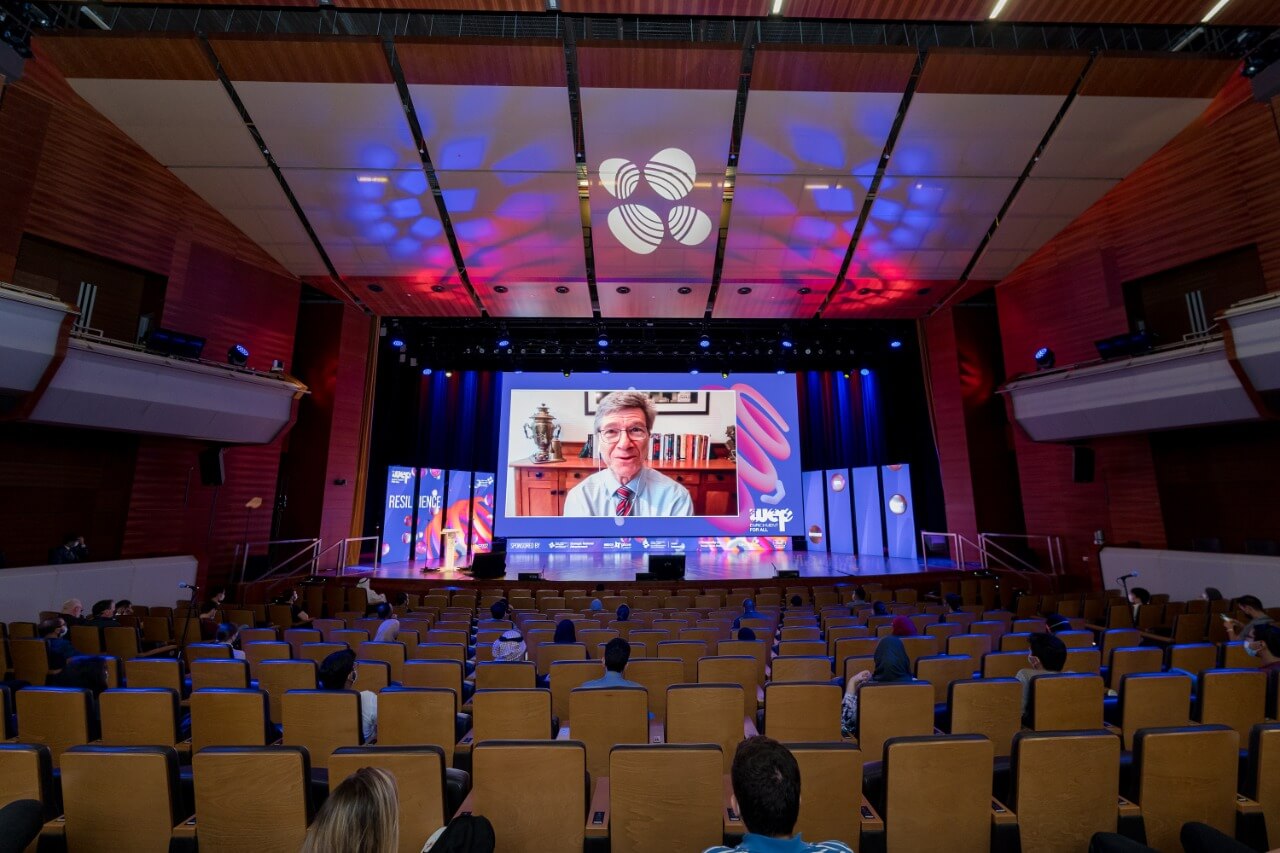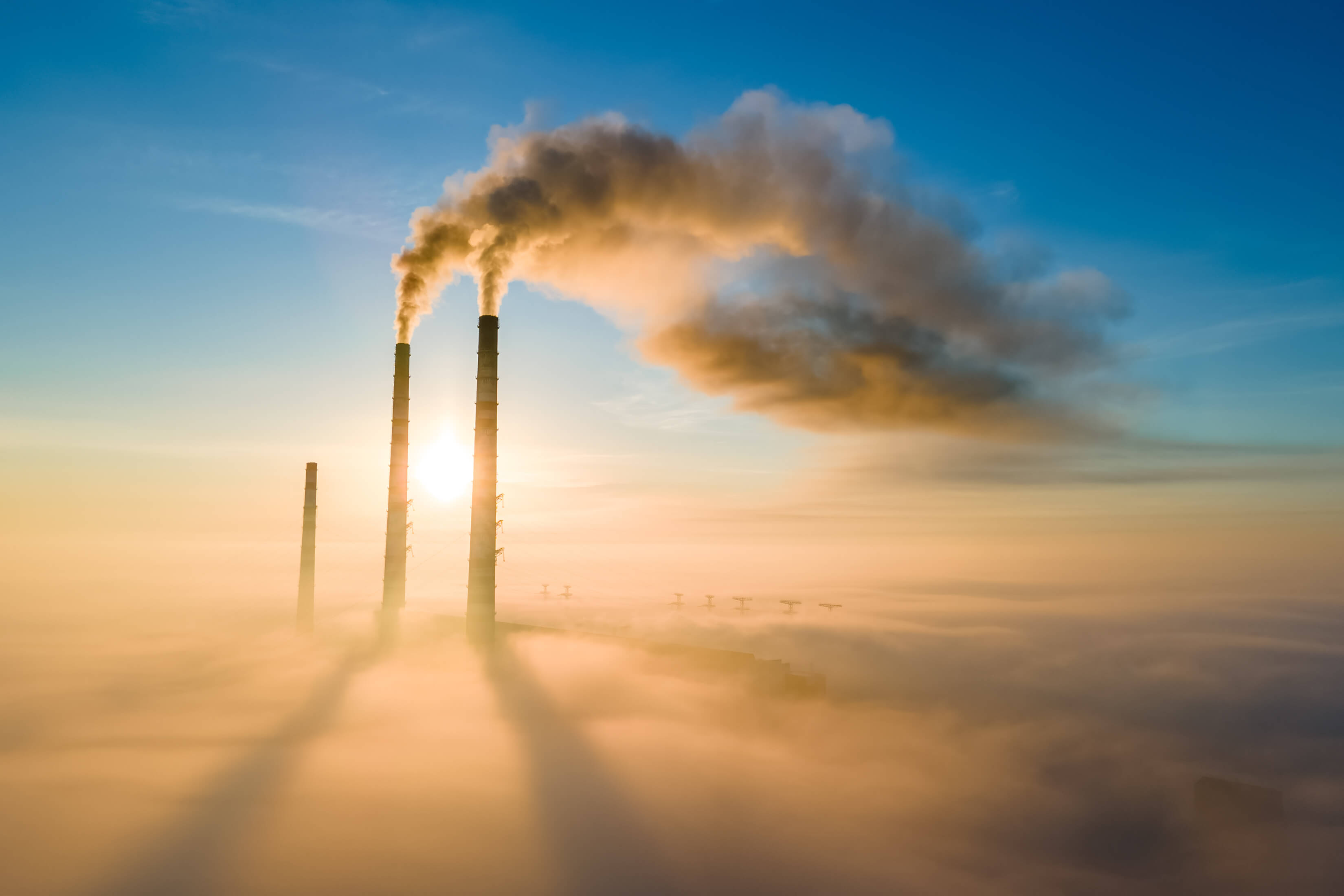WEP 2022: Jeffrey Sachs on building a green future

Professor Jeffrey Sachs from Columbia University giving his keynote talk at WEP 2022's opening night.
The University's 2022 Winter Enrichment Program (WEP) launched on January 9 under the theme of "resilience." A fitting and distinguished keynote speaker for the opening night of WEP 2022 to represent this topic was Professor Jeffrey Sachs, a globally renowned development finance economist and director of the Center for Sustainable Development at Columbia University. An expert on the critical issues of sustainability and climate change as they relate to global development, Sachs serves as President of the UN Sustainable Development Solutions Network and was Special Advisor to three UN Secretaries-General.
Speaking on why the theme of resilience is so vital right now as the world faces multiple upheavals from environmental degradation to a global pandemic, Sachs said: "KAUST's theme of bringing science and technology to bear on these enormous challenges that we face is not only accurate, but it is essential."
Highlighting the central importance of collaboration, Sachs pointed to the fact that adequately facing those challenges requires global society to "do things in the next twenty to thirty years that we have never done before to rescue the planet from our own devastating impacts."
High on the list of priorities is addressing the impacts of massive and still rising greenhouse gas emissions that are rapidly perilously changing the climate. "We need to essentially end greenhouse gas emissions by mid-century. That means decarbonizing the energy system and the world economy. No part of the world can accomplish this global change on its own," said Sachs.

Professor Jeffery Sachs argues that we need to essentially end greenhouse gas emissions by mid-century.
The challenge of adaptation
One of the big questions he pointed out is how the world can most effectively adapt to climate change. "There's a lot of warming ahead already cooked into the Earth's systems," he warns. Adapting to these realities requires science and technology solutions to diversify our energy mix within the Kingdom, the region and the world to reach net-zero target milestones by mid-century.
It's clear that the path lies in renewables or zero-carbon energy sources relative to the continued use of hydrocarbons combined with carbon capture and storage. KAUST researchers have been at work to answer the scientific and geological challenges for the Kingdom to capture and store CO2 at a massive scale in the region. The KAUST Circular Carbon Initiative mobilizes the University's research and innovation strengths to develop and deploy novel technological solutions to support the Circular Carbon Economy (CCE) Platform.
KAUST scientists have also developed multifunctional catalysts that can contribute to the circular carbon economy by transforming captured carbon dioxide into fuel. The catalysts could help reverse the ever-increasing release of CO2 by preventing new emissions.
"KAUST and the Kingdom have a global constructive role in finding solutions for rapid decarbonization, for an interconnected global energy system, and for facing the challenges of adaptation," said Sachs. "This is a huge agenda and I think a big and unique responsibility for great universities around the world."
The future hydrogen economy
At the governmental level, the Saudi Green Initiative fosters and supports innovative collaborations across sectors in the Kingdom to protect the environment, usher in energy transformation and establish sustainability programs to achieve a common goal of a green future.
One of the major avenues toward a greener future and bringing forth a zero-carbon energy system is developing the hydrogen economy. As Sachs highlighted in his talk, there are two main versions of sustainable hydrogen in principle: green hydrogen—produced by solar or zero-carbon power and blue hydrogen—using hydrocarbons and stripping off the hydrogen, provided there is large-scale carbon capture and storage available.
KAUST scientists have been leading research on green hydrogen for years. In addition to the work being done on the KAUST campus, the University has also partnered with NEOM, a futuristic region on the Red Sea that will be powered entirely by renewable energy. Green hydrogen will be an important part of NEOM's economy, so hydrogen innovations over the coming decades are necessary.
"I think we all look to Saudi Arabia as being a world powerhouse in the future hydrogen economy, which is going to play an enormous role in industry," said Sachs.
Related links
- Answering the call for carbon management
- Green Hydrogen’s Time is Now
- Recycling CO2 to fuel a carbon-neutral future
- Addressing the climate change challenge
- Novel carbon capture technique offers hope for sustainable energy future

